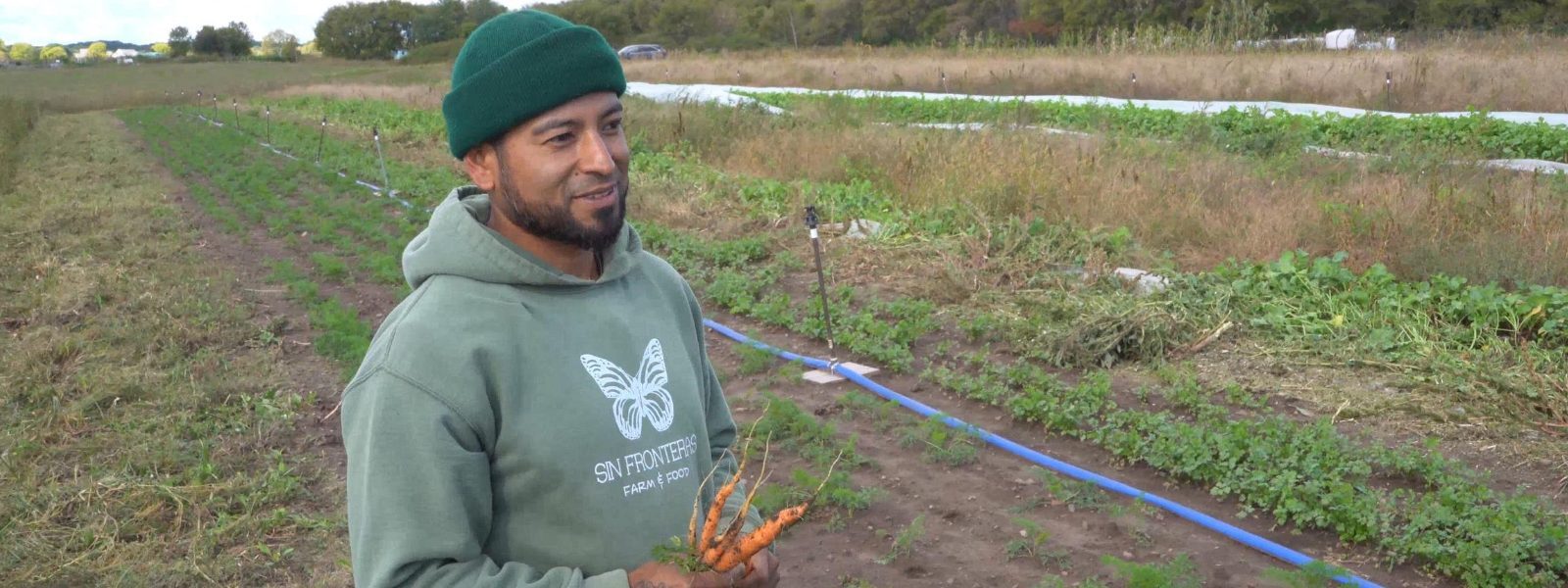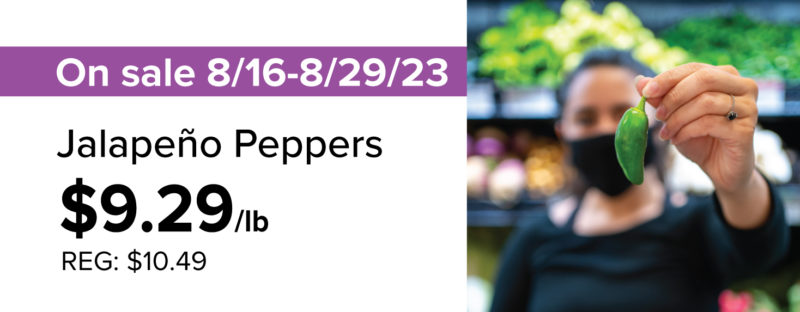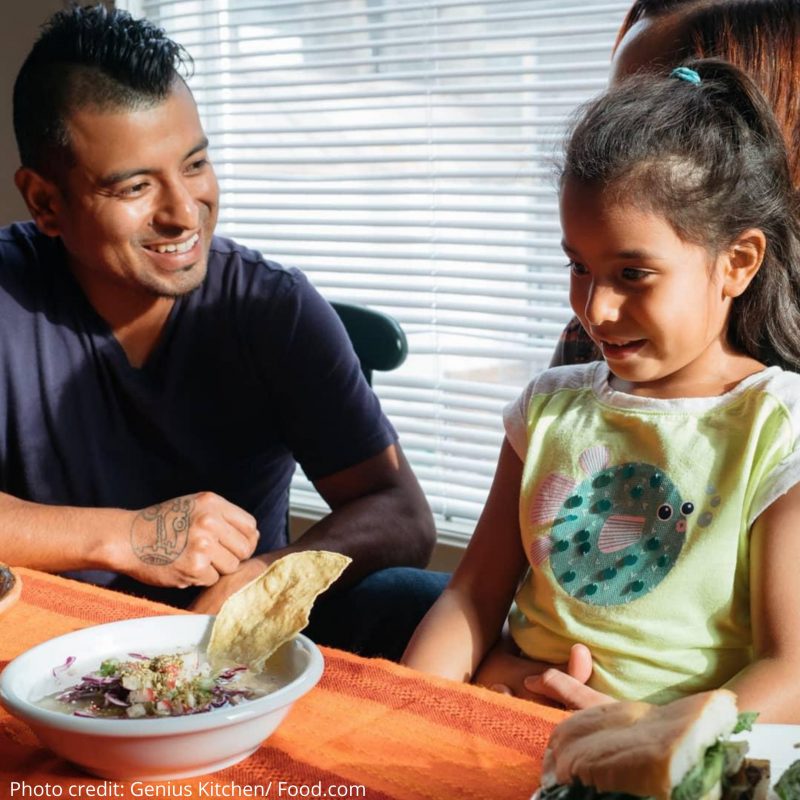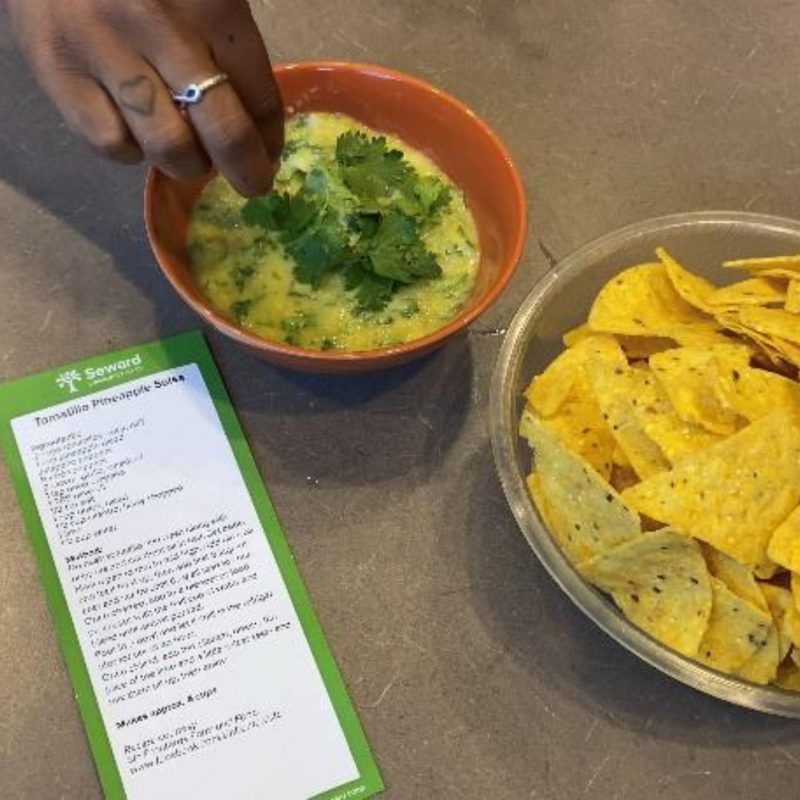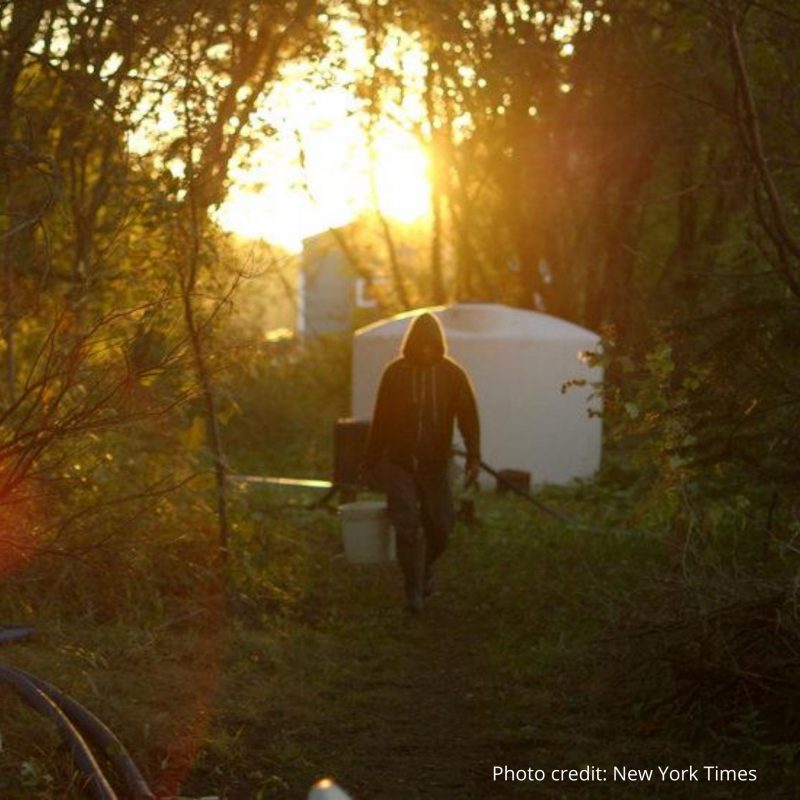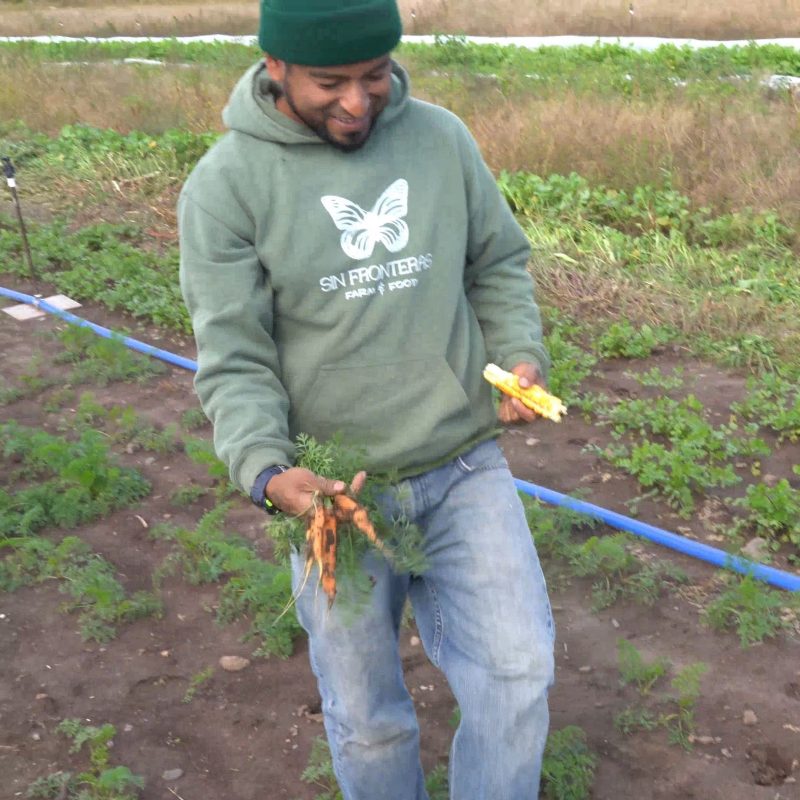Learn About Sin Fronteras
Sin Fronteras “Without Borders” Farm & Food, is a local, small-scale, sustainable and BIPOC-owned family farm in Stockholm, Wis. that grows fresh produce to make healthy Latino food. Sin Fronteras’ mission is to cultivate culturally appropriate foods using sustainable organic growing practices that restore and respect the earth. Farmers Eduardo Rivera and Madeline Shaw sustainably grow hard-to-find varieties of chile peppers, tomatillos and epazote, along with more familiar crops like roots, greens and herbs.
Sin Fronteras began as a one acre farm on rented land near Stillwater, Minn. in summer 2014, and now owns a 17-acre farm in Wisconsin. During a typical growing season, Eduardo grows produce for Twin Cities area restaurants and cooperative grocery stores – specifically Seward and Eastside Co-ops. The family also offers a culturally specific Community Supported Agriculture (CSA) program, in which members purchase a share in return for produce grown on the farm. The CSA boxes are delivered throughout the Twin Cities – including to both the Franklin and Friendship stores– and are filled with freshly harvested fruits and vegetables traditional to diets of Mexicanx and Latinx communities. Sin Fronteras is one of the first farms to offer a culturally appropriate CSA program catered to Latinx households in the Twin Cities.
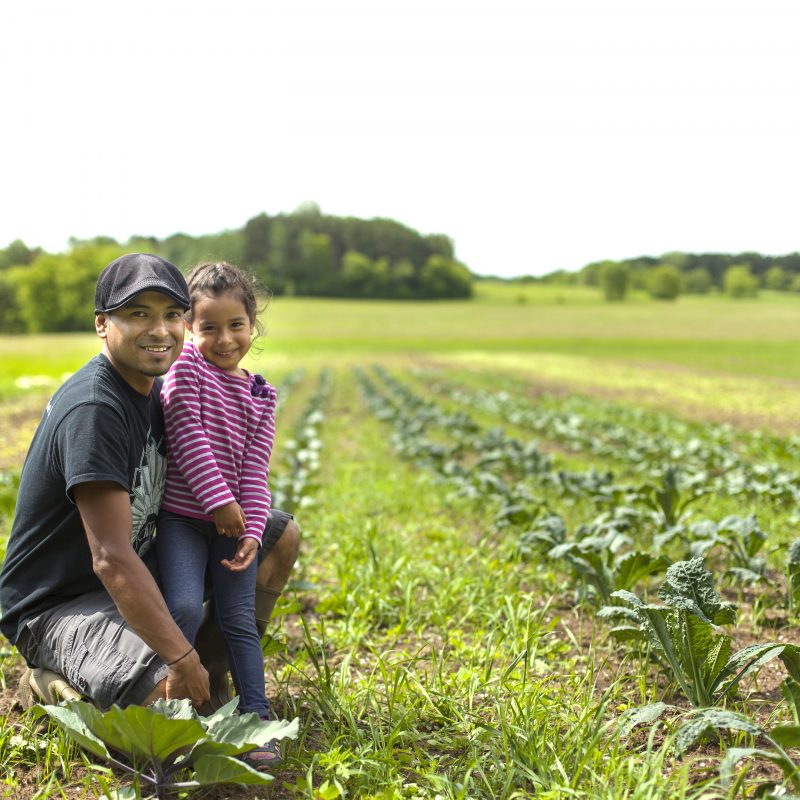 Support Local, Sustainable, BIPOC-Owned Farms
Support Local, Sustainable, BIPOC-Owned Farms
Sin Fronteras expands access to BIPOC-owned land and local food for our communities. The ultimate goal for Sin Fronteras is to start an incubator program for other Indigenous farmers and farmers of color, and to offer a retreat and learning center on the farm. Now that they’ve purchased land, Eduardo and Madeline can focus on scaling up their operation to financially support a project to build a commercial kitchen. They hope this kitchen will support the first Taco Farm in the Midwest. The idea is to produce tortillas, hot sauces, salsas and other products using ingredients grown on the farm and sell them to further their farm’s financial viability.
